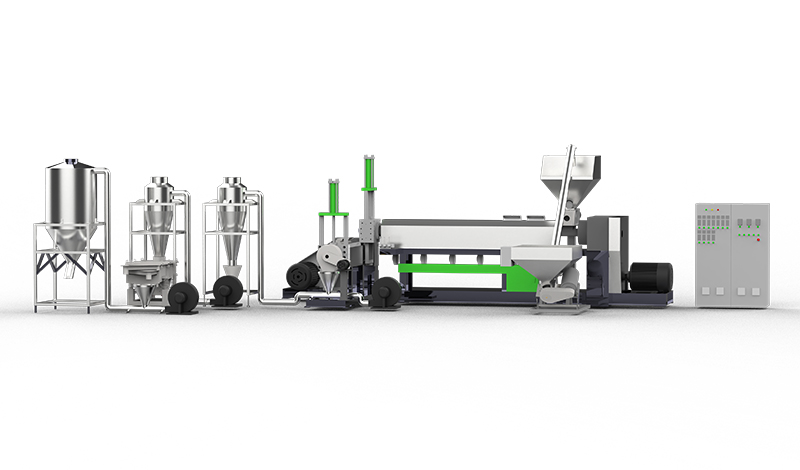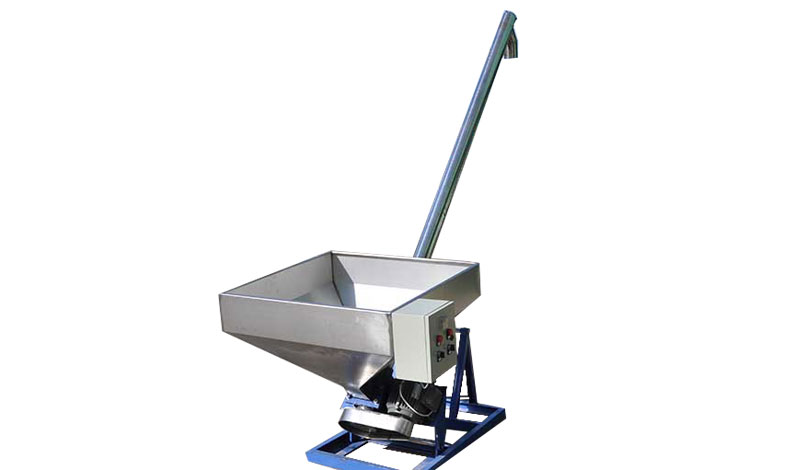

Contact us

Plastic Washing Recycling Machines significantly improv […]
Plastic Washing Recycling Machines significantly improve recycling efficiency through various mechanisms and processes. These machines play a pivotal role in streamlining the recycling workflow, reducing manual labor, and optimizing resource utilization.
Automation of Cleaning and Preparation:
Reduced Manual Labor: One of the most noticeable ways these machines improve recycling efficiency is by automating the cleaning and preparation of plastic waste. Manual cleaning and sorting are time-consuming and labor-intensive processes. By automating these tasks, recycling facilities can significantly reduce their reliance on human labor, which not only saves time but also cuts labor costs.
Consistent Process: Automation ensures that each plastic item is subjected to the same cleaning and preparation process, eliminating variations in quality caused by human factors. Consistency is crucial for producing high-quality recycled materials that meet market standards and regulatory requirements.
Enhanced Processing Speed:
Increased Throughput: Plastic Washing Recycling Machines are designed for high-speed operation. They can process large volumes of plastic waste in a relatively short amount of time, increasing the overall throughput of recycling facilities. This is particularly advantageous when dealing with large quantities of plastic waste from industrial sources.
Quick Turnaround: Faster processing means that recycled materials can be prepared and delivered to manufacturers more quickly. This reduces the lead time between the collection of plastic waste and the availability of recycled materials, making recycling a more attractive option for manufacturers with tight production schedules.
Improved Material Recovery:
Optimized Material Sorting: Some advanced Plastic Washing Recycling Machines incorporate sorting capabilities to segregate plastic waste by type and quality. This ensures that the right plastics are processed together and that high-quality materials are kept separate from lower-quality ones. Such precision in sorting maximizes material recovery rates.
Minimized Waste: By efficiently removing contaminants and low-quality materials, these machines reduce the amount of waste generated during the recycling process. This not only conserves resources but also reduces disposal costs associated with non-recyclable or low-value materials.
Quality Assurance:
Consistent Cleaning: These machines are engineered to deliver consistent and thorough cleaning of plastic waste. Consistency in the cleaning process is essential for ensuring the quality of recycled materials. High-quality recycled plastic is more marketable and attracts manufacturers looking for reliable feedstock.
Quality Control Measures: Quality control is an integral part of Plastic Washing Recycling Machines. They often incorporate sensors and monitoring systems to detect and address any deviations from quality standards. Any irregularities can be corrected in real-time, ensuring that only high-quality materials are processed further.
Energy and Resource Efficiency:
Reduced Energy Consumption: Recycling plastic generally consumes less energy than producing virgin plastic from raw materials. By cleaning and preparing plastic waste efficiently, these machines contribute to overall energy efficiency in the recycling process. This reduction in energy consumption helps lower operational costs and environmental impact.
Optimized Resource Utilization: Plastic Washing Recycling Machines optimize the use of resources by ensuring that only clean and high-quality materials continue through the recycling process. This minimizes resource wastage on materials that might be rejected due to contamination or poor quality.
Streamlined Workflow:
Seamless Integration: These machines can be seamlessly integrated into existing recycling facilities, creating a more streamlined workflow. They can be customized to fit the specific needs and space constraints of a recycling operation, ensuring that resources are used efficiently.
Reduced Downtime: The reliability of Plastic Washing Recycling Machines reduces downtime and maintenance requirements. This means that recycling facilities can operate continuously, maximizing their efficiency and productivity.

Copyright © Yuyao Lvdao Plastic and Rubber Machinery Co.,Ltd. Plastic Granulation Line Supplier 浙ICP备11026885号-3



